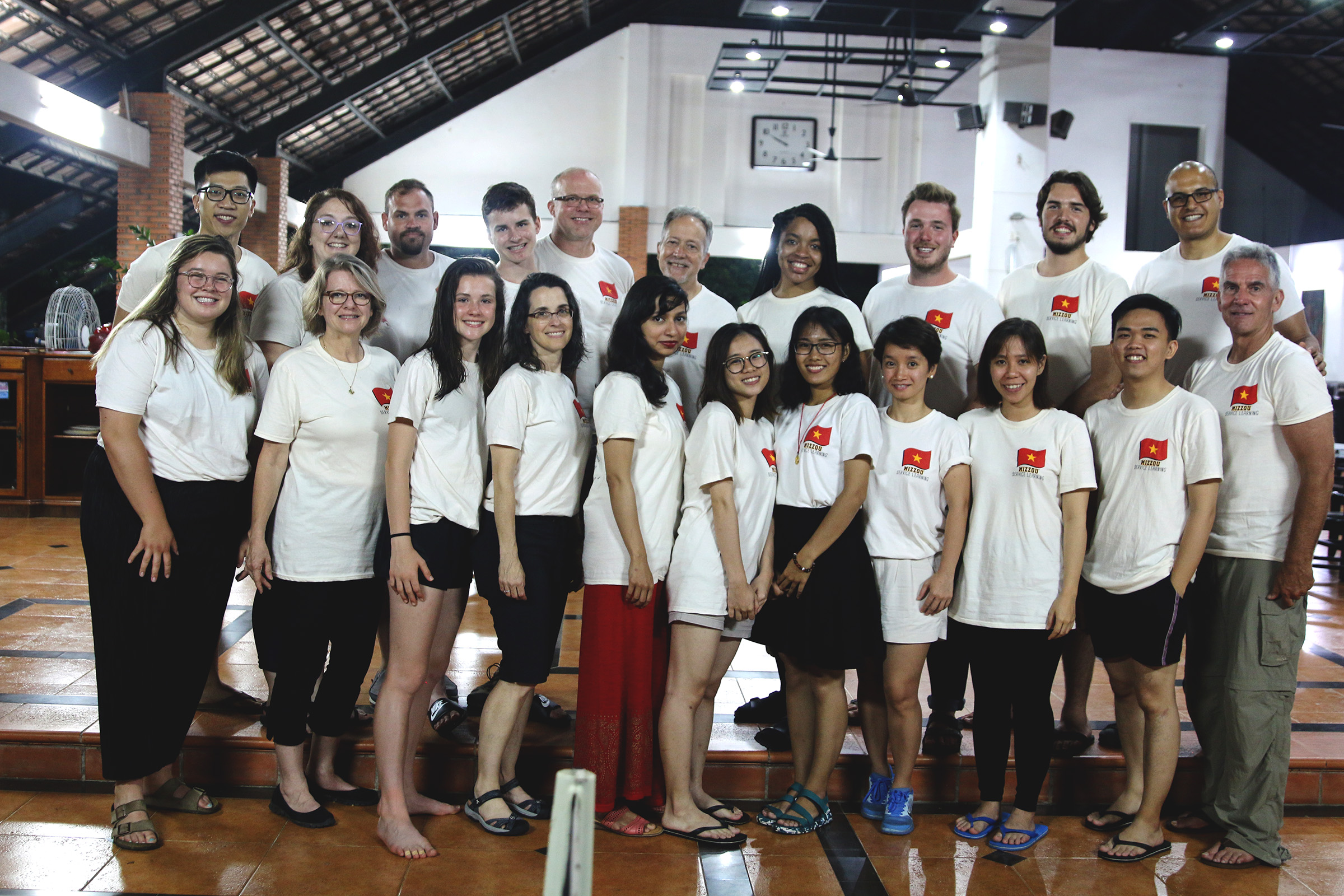Published on Oct. 10, 2018

In 2012, then-MU Athletic Director Mike Alden traveled to Vietnam with representatives from Nike, touring Nike factories and facilities and learning about its microfinancing program in a rural area called Cu Chi. Alden’s visit not only sparked a lifelong interest in Vietnam, but motivated him to fund the microloans program.
The Nike group visited a woman’s home in the Cu Chi region. The woman was sitting on her front porch with a sewing machine. She had nothing but her family, home and the sewing machine. To help the woman with her financial struggles, Nike provided her with a $100 loan to start a business sewing pockets for shirts.
“We asked her, ‘How could you increase production?,” Alden says. “She answered, ‘Well, if I had a second sewing machine, then my mother, daughter and son could help, which would get twice as much done as we are getting done now.”
That motivated Alden to collect $20 from the group and present it to the Cu Chi Women’s Union, which is the non-governmental organization that works with Nike to provide loans to local women.
“That was our very first microloan,” Alden says. “The family culture, respect, humility and compassion that they (the women) have for others was really inspirational to take a small loan to help a woman and her family increase production to make pockets.”
Once back in the United States, Alden began fundraising with athletic leaders for the microfinancing project.
“Forget the money, it has given these women pride,” Alden says. “When you empower people, especially women, it’s transformational.”
After serving MU as the athletics director for 17 years, Alden retired in 2015, but wanted to continue serving the women of Cu Chi. He visited with Vice Provost of Undergraduate Studies Jim Spain, who put him in touch with Anne-Marie Foley, the director of MU’s Office of Service-Learning. The two initiated the Cu Chi Micro-Enterprise Research Project.
“We started talking and I was interested in doing what we do—bringing groups of students to work with non-governmental organizations in developing nations,” Foley says. “Both of us thought each entity would work great together, so we connected to create this project.”
By November 2016, the research project kicked off with Foley and Alden visiting Vietnam. In April of 2018, Foley and Alden returned to Cu Chi one last time before bringing the research team to the region.
“When we were in Vietnam in April, Mike and I were listening to powerful stories from women about what these loans meant to them,” Foley says. “Three of the six women I talked to had been getting loans for six years, paid them back each year and not only were their families out of poverty, their children went to college.”
In June, staff from the Office of Service-Learning, students and faculty, including Associate Professor of Social Work Clark Peters and Professor of Finance John Howe, spent time in Cu Chi, studying the impacts microloans had on recipients. Throughout the two weeks, the group worked with translators from Eastern International University (EIU) to form relationships with the women. By creating the relationships and working together, the group gained insight into their lives.
Before going on the research trip, undergraduate mechanical engineering student Jack Schroder was nervous forming relationships with these women.
“We were around our translators 24/7,” Schroder says. “I think that was really important because if we just met with the translators during the couple of hours that we were interviewing, it would have been a lot more difficult.”
The group was able to gather the information it needed to understand the microfinancing program better. The goal was to grasp every aspect from the administration process to how the microloans were able to lift the women out of poverty. The research not only provided information to donors, but also brought an understanding of how the program could work in other countries.
“One of the biggest things was that all the loan officers or administrators were borrowers at some point, which was pretty interesting to me,” Schroder says. “This allows them to sympathize and empathize with the borrowers really well.”
“Just because we showed up doesn’t mean they (the women) owed us their most personal stories, struggles with their children, what they were making or what their dreams were,” Foley says. “They honored us with that.”
The MU Office of Service-Learning is preparing for another research trip to Cu Chi next summer.